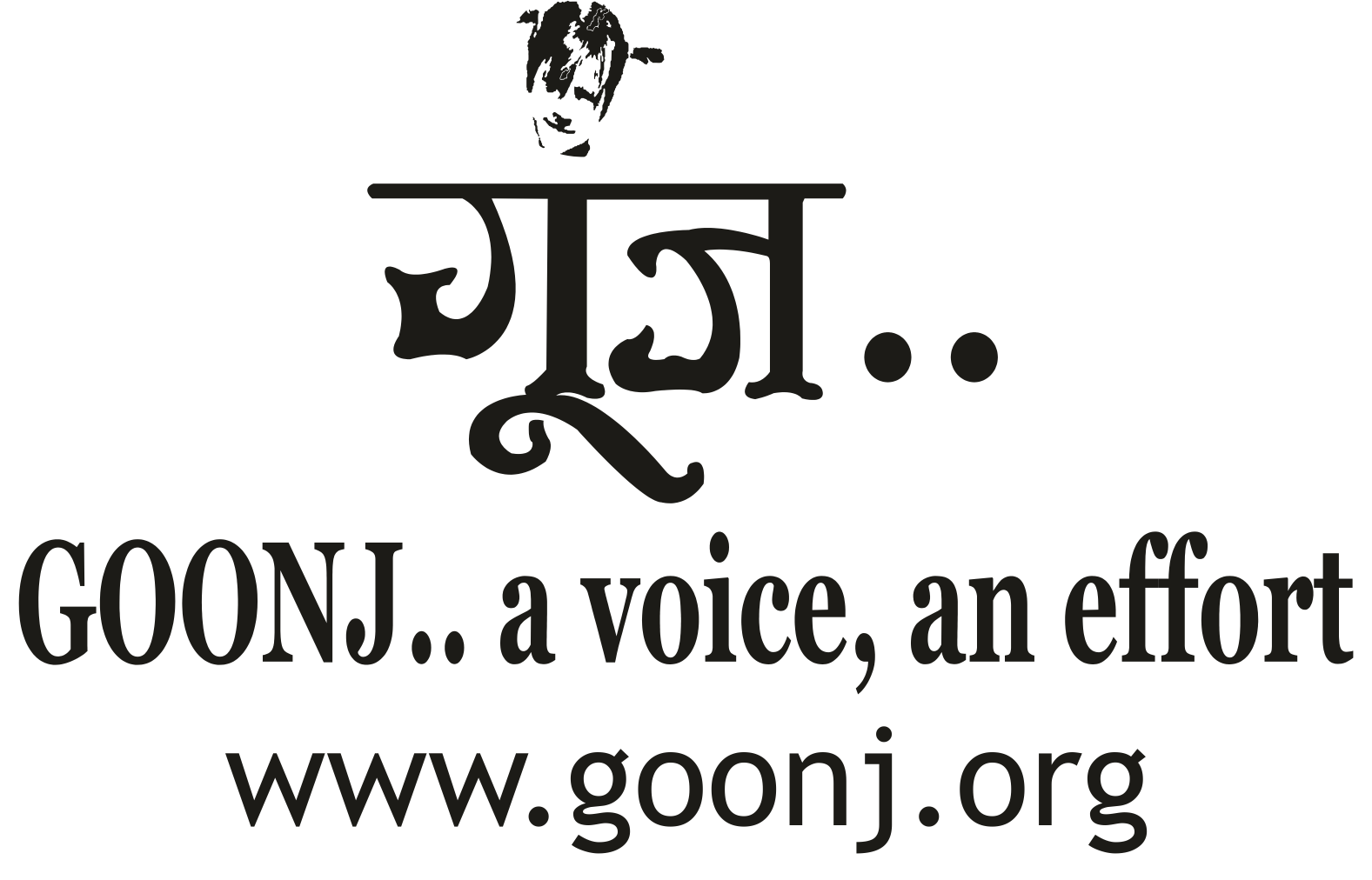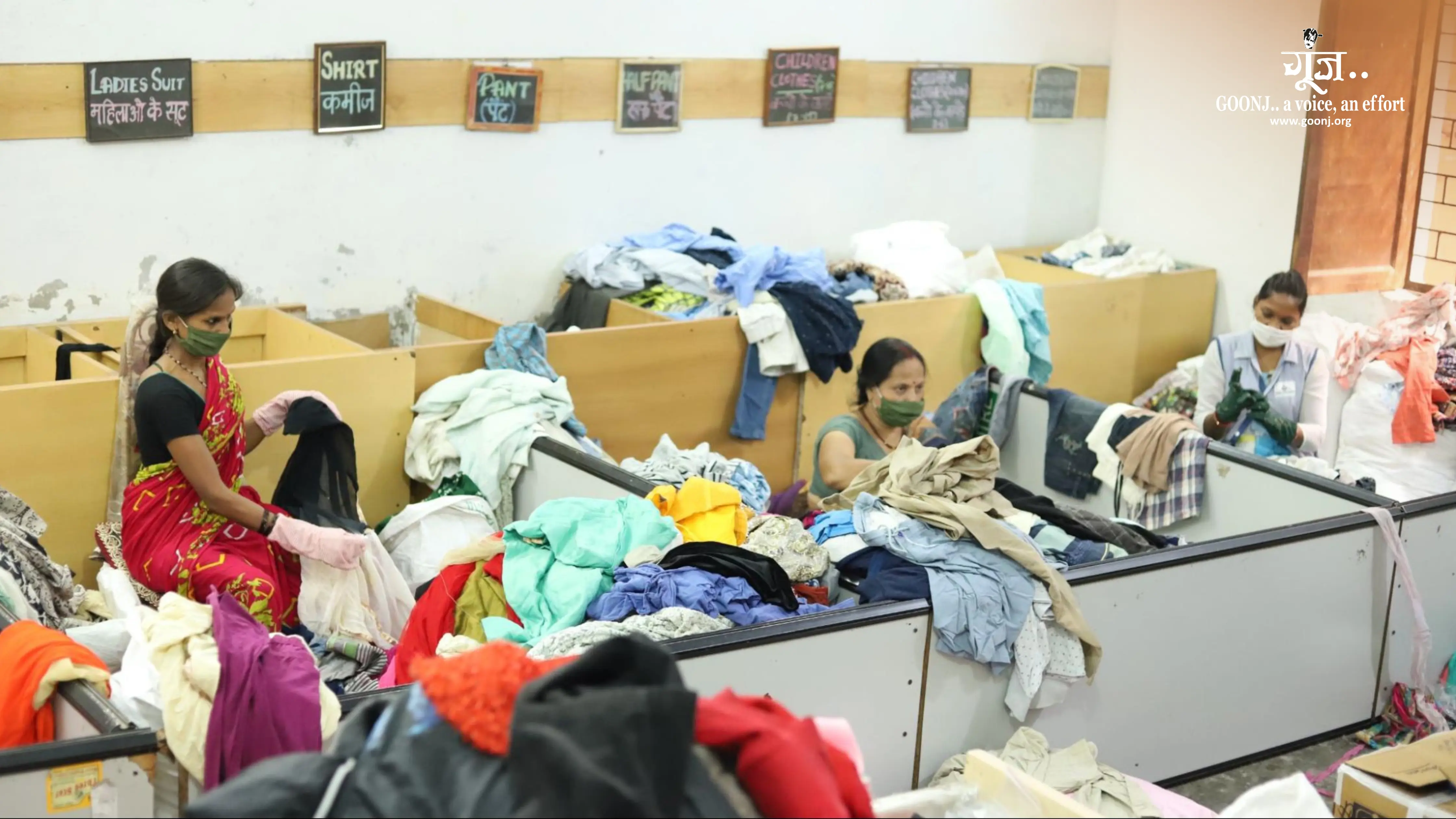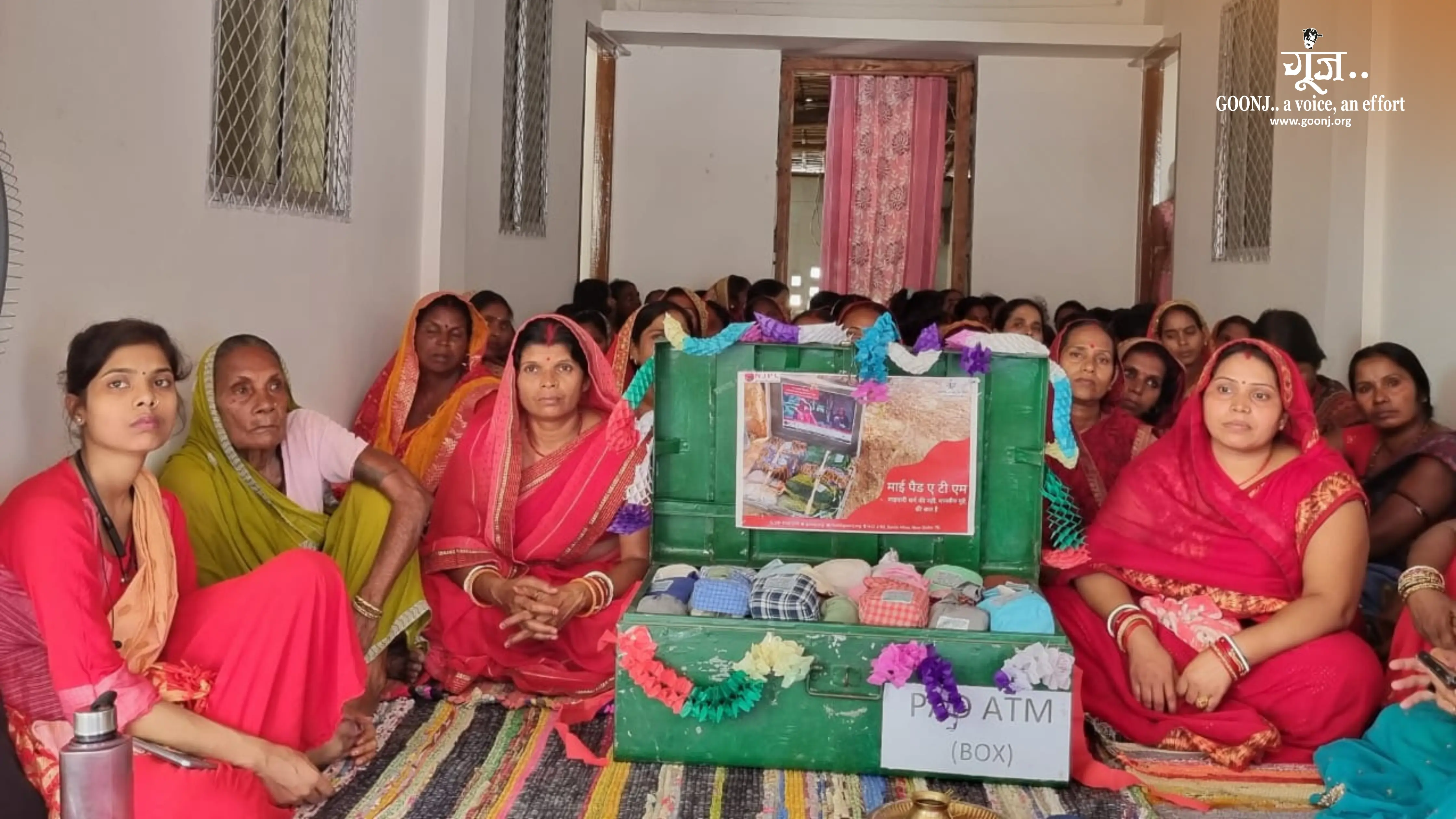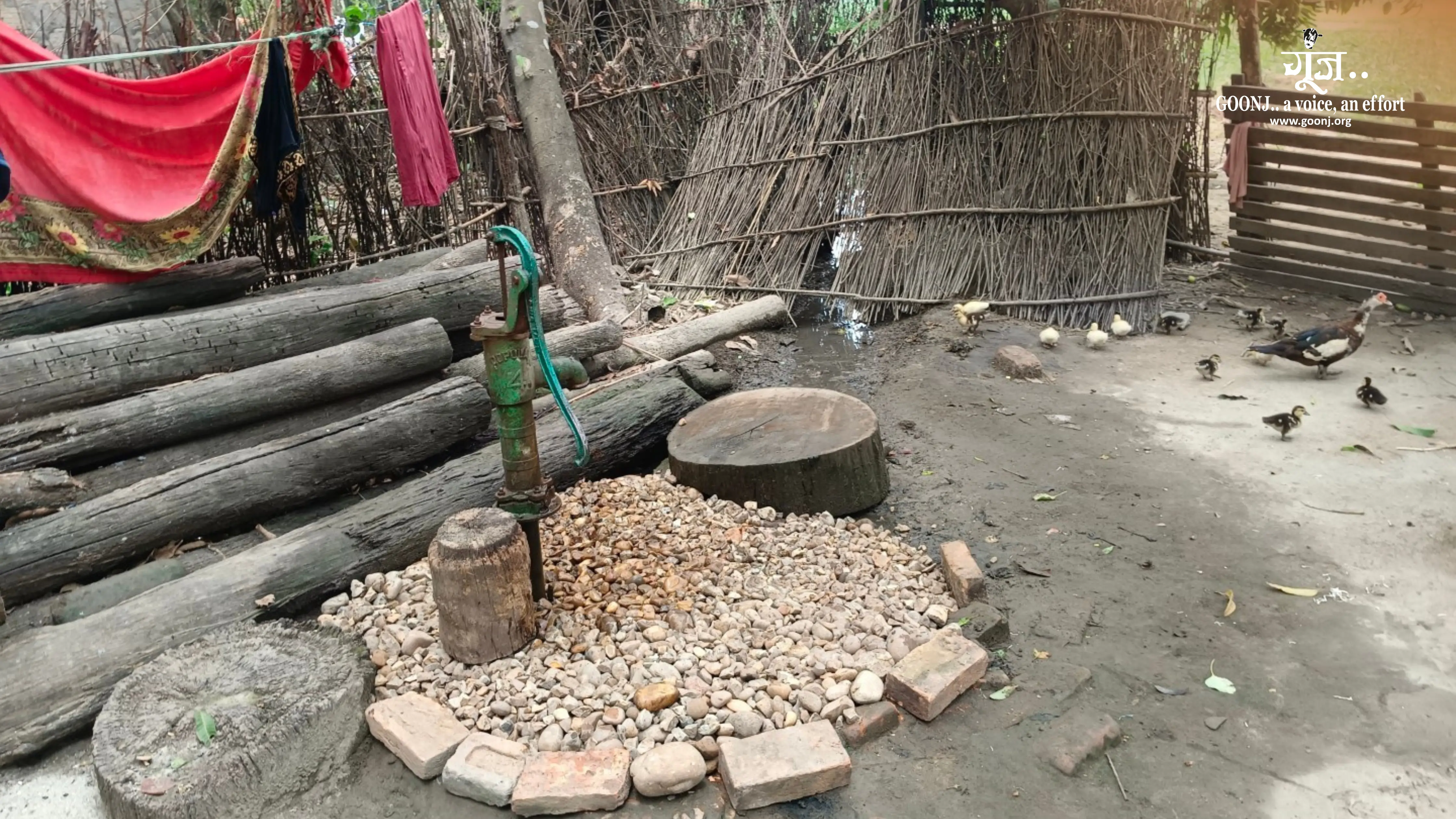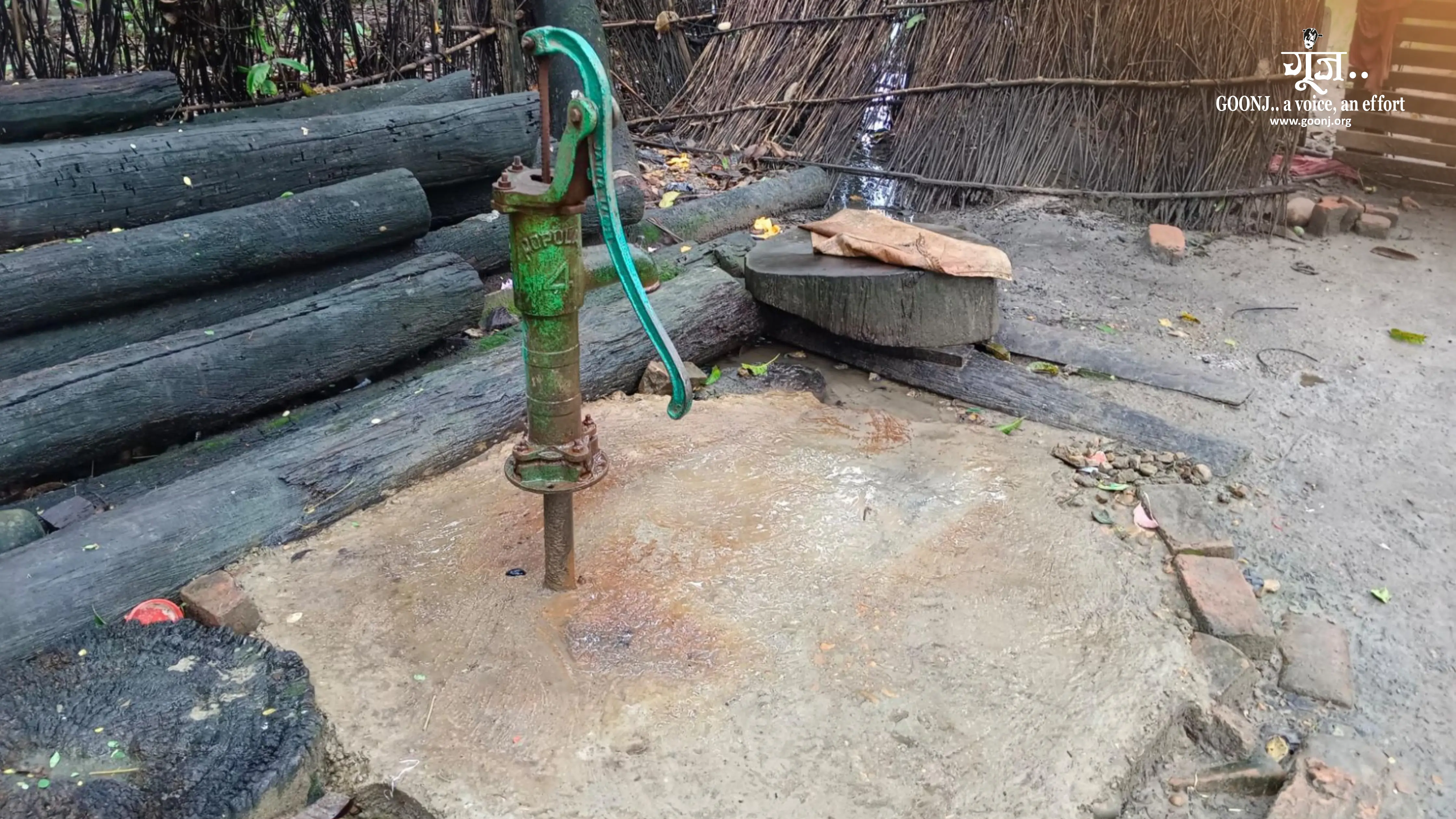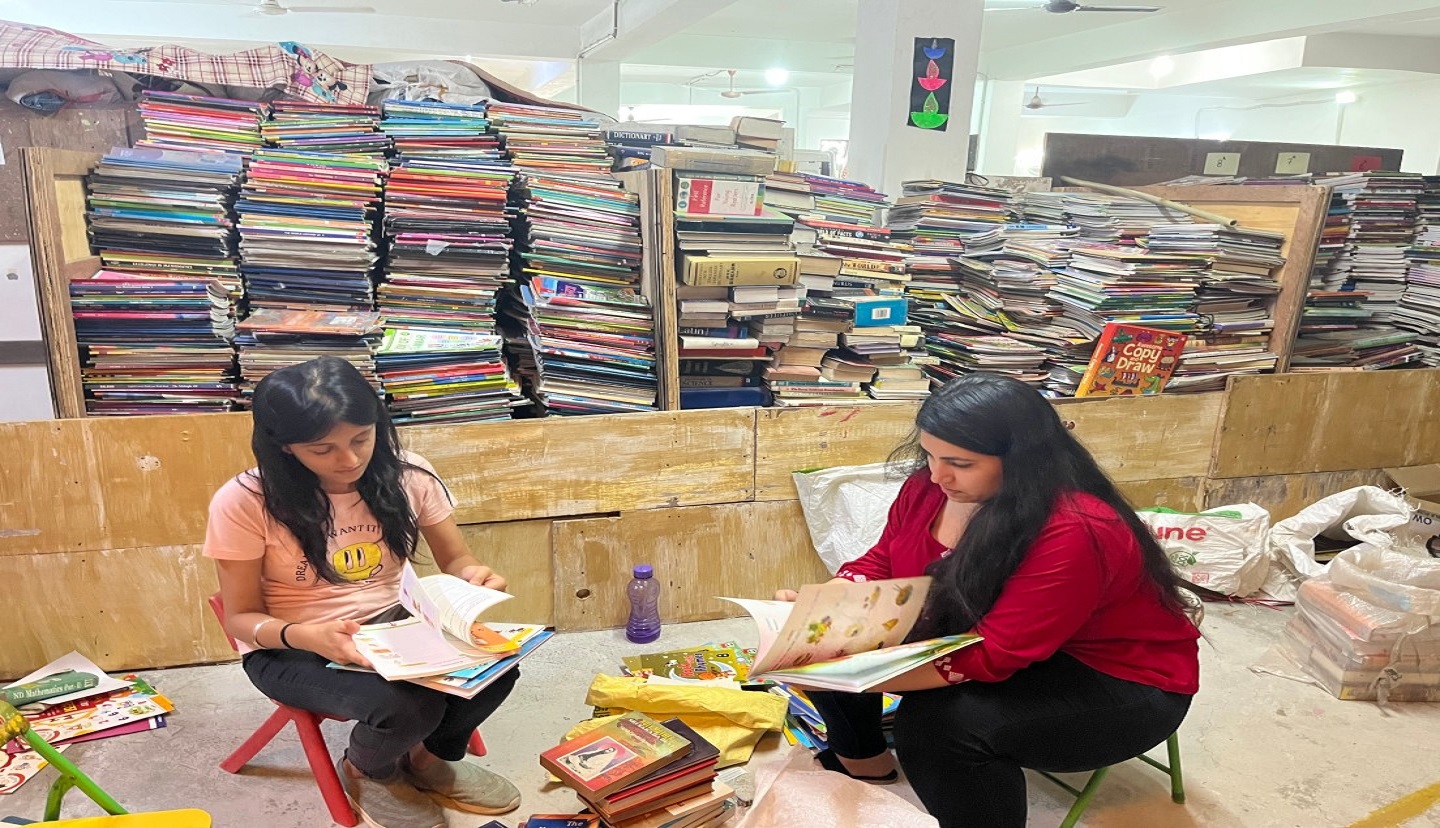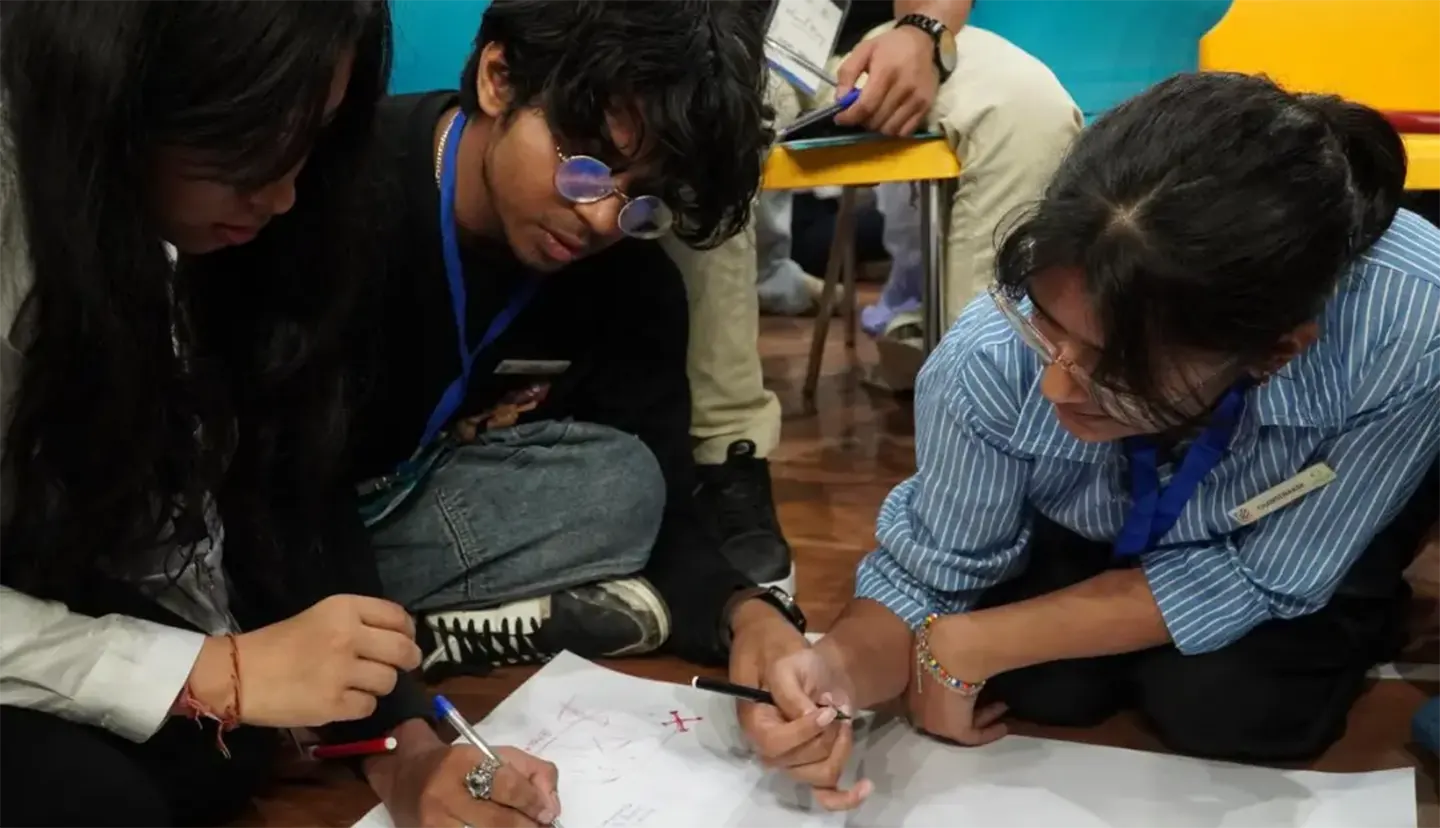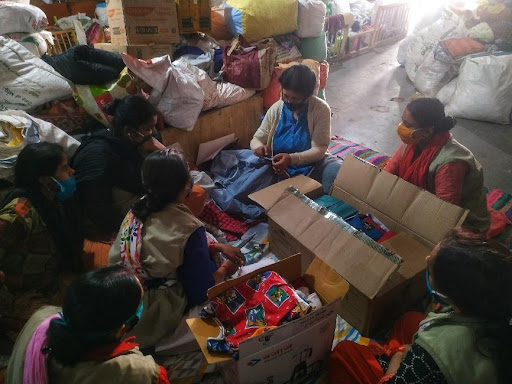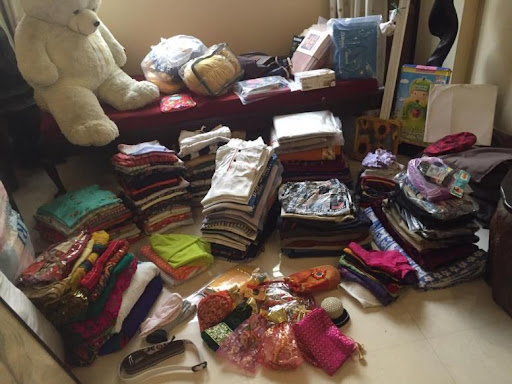Sarees, timeless garments of our tradition, are more than just clothing. They symbolize basic needs, dignity, development, and livelihood for a vast majority of women.
How Your Saree Can Drive Development & Dignity
India’s cities see millions of sarees lying unused or discarded while at the same time, over 300 million people in India face material poverty, with women often lacking access to basic clothing like sarees. For many rural women, sarees are not just a necessity but also a symbol of their dignity and identity. In cities women are wearing sarees only occasionally, transitioning to modern dressing like trousers, skirts etc but in rural India a vast majority of women still live in cotton sarees, which are becoming more and more expensive..
Goonj transforms sarees into a material currency for dignified development work. While wearable sarees are reached out to rural communities as part of material kits, that nudge rural communities to take action on their local issues, even unwearable cotton sarees contributed to Goonj Centres of Circularity are repurposed into essential items like cloth pads, patchwork quilts, sitting mats and much more. In 2023-24 alone, Goonj reutilized 3 million kilograms of underutilized textiles, reducing the environmental burden on landfills while empowering rural communities. The cloth sanitary pads provide a sustainable solution for menstrual wellbeing of thousands of rural women, while also mobilising them for taking collective action for grassroots development.
My Pad ATM: Sustainable Menstrual Hygiene through Saree Repurposing
In Matiyarwa Tola, a small village in West Champaran, Bihar, many women faced significant challenges related to menstrual health and hygiene.
Under Goonj’s flagship menstrual wellbeing initiative ‘Not Just a Piece of Cloth,’ during a meeting with the local women, they shared their struggles with inadequate resources, often resorting to using any available cloth during their periods. This led to the start of My Pad ATM to address these needs effectively.
How My Pad ATM Empowers Rural Women
Goonj MY Pad ATM operates on a community-driven model. Goonj entrusts a local group of women with a stock of MY Pads (cloth pads made from urban surplus cloth) and whenever they need local women contribute Rs. 20 for each pack of cloth pad they take. Half the money goes to the caretaker group of women, while the rest is reserved for community development. The funds raised have been used for multiple purposes like:
- Address personal needs, such as preparing for a wedding.
- Build platforms around hand pumps, allowing women to bathe and wash clothes with dignity.
This effort showcased the power of collective action and resourcefulness. As Poonam Devi, a resident, expressed, “If Goonj had not initiated this, we could never have built the platforms ourselves. We are forever grateful.”
If you are wondering how this story of MY Pads connects to your sarees. MY Pads are made from cotton and semi cotton cloth and torn cotton sarees play a big role in making these pads.
Why Contributing Sarees Creates Impactful Change
Every saree contributed to Goonj becomes a tool for rural change. By transforming sarees into essential items, we create sustainable solutions that address health and hygiene while fostering rural development. This initiative bridges the gap between the resourceful and resource scarce, demonstrating ways to empower rural women through saree repurposing and how simple contributions can lead to significant impact.
Join Goonj’s Saree Campaign to know ways to contribute.
Together, Let’s Create a Better Tomorrow
Transform your underutilized materials like sarees into opportunities for rural development. By channelizing resources wisely, we enable meaningful change and strengthen the fabric of our communities. Contribute a saree today and be a part of this life-changing movement. Check out (Cloth.Day) to know more on how underutilized clothes can be a currency for change.
